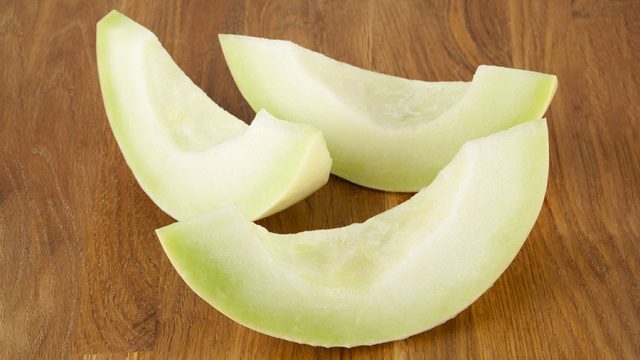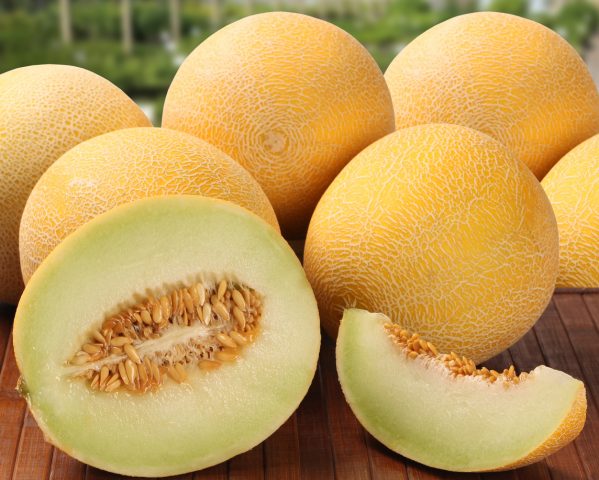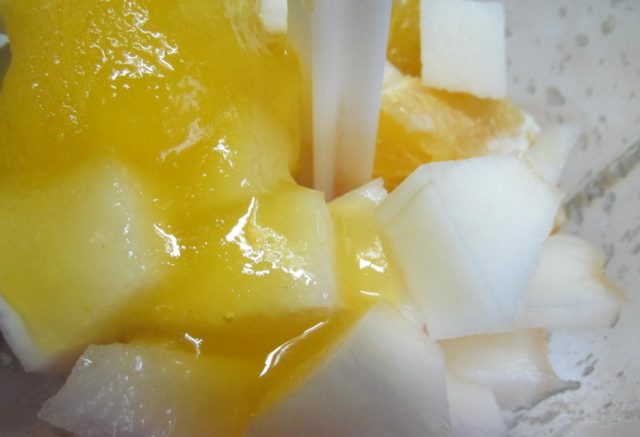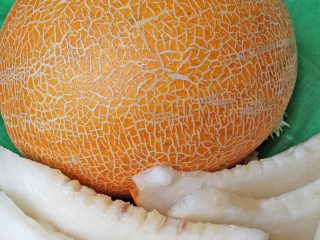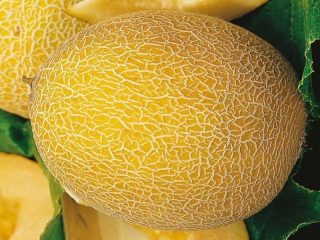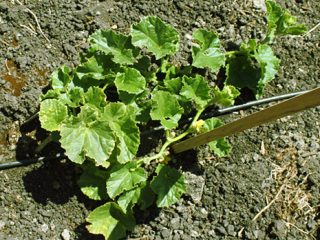Content
Melon has a huge number of admirers and for good reason, because it has a delicious taste and aroma, and is also very good for health. This summer fruit contains a large amount of fiber, vitamins and microelements. But, despite the many advantages, the first fruit should be consumed with caution, since it is at the beginning of the melon season that melon poisoning quite often occurs. The natural desire to enjoy tasty, fragrant fruits after a winter poor in vitamins can result in such unpleasant health consequences.
Is it possible to get poisoned by melon?
You can get poisoned by melon just as easily as with other fruits and berries, and the symptoms can be very varied. Even when consuming high-quality fruits, poisoning can occur if eaten incorrectly. Melons are rich in fiber and are considered a difficult food to digest. Therefore, you should not mix them with fermented milk products or wash them down with water.It is also not recommended to combine the consumption of the fruits of this melon with the consumption of alcoholic beverages.
It is contraindicated to eat melon for diabetics and people suffering from stomach ulcers (duodenal ulcers), as well as during periods of intestinal dysfunction. Nursing mothers should also refrain from consuming this sweet, aromatic berry.
Classification of poisonings
There are two types of melon poisoning:
- Nitrate (chemical).
- Microbial.
Chemical poisoning is caused by substances used in agriculture - pesticides and nitrates. For example, a fertilizer such as nitrate salt can accumulate in fruits, becoming hazardous to health in large quantities.
Symptoms of nitrate poisoning in melon
If agrotechnical rules for growing melons and melons are violated, harmful chemical compounds may accumulate in the fruits. Nitrate poisoning appears rather slowly, after 6-8 hours, and is characterized by severe symptoms.
The main symptoms of chemical intoxication include:
- dizziness;
- noise in ears;
- loss of appetite;
- weakness;
- labored breathing;
- vomit;
- sharp painful sensations in the abdomen;
- a feeling of bitterness in the mouth;
- dark brown stool;
- blue lips and nails;
- liver pain;
- yellowing of the skin and sclera of the eyes.
Symptoms of microbial poisoning of melon
You can also get poisoned by melon if the rules for its storage and transportation are not followed. Damage to the skin leads to the penetration of bacteria into the fruit and their rapid proliferation in the sweet environment. Symptoms of bacterial intoxication are similar to disruptions in the functioning of the gastrointestinal tract.
Microbial poisoning of melon manifests itself in the form of:
- pain in the abdomen;
- decreased appetite;
- nausea;
- periodic vomiting;
- difficulty digesting food;
- temperature rise.
How to distinguish overeating from poisoning
Melon is a rather difficult fruit for the digestive system. After consuming it, some discomfort may occur, which can easily be confused with poisoning. Melon is difficult to digest and does not combine well with other foods, so it should not be overused. Overeating can lead to the following symptoms:
- nausea;
- bloating;
- heaviness in the stomach;
- excessive gas formation;
- diarrhea.
These symptoms develop quickly, within a few hours after consuming excess melon, and, unlike severe poisoning, do not require treatment.
Is it possible to eat melon with honey?
Doctors categorically do not recommend consuming melon with honey. In their opinion, this combination is potentially hazardous to health. This is due to the fact that the fruit pulp enters the stomach not as a puree, but in the form of pieces that are quite difficult to digest.Following the gastrointestinal tract, pieces of fruit are exposed to bile and gastric juice, and the simultaneous consumption of honey disrupts the natural digestion process.
Undigested pieces of pulp are enveloped in honey and stick together, forming peculiar lumps, which end up in the intestines. Such a meal can result in either a slight deterioration in well-being in the form of diarrhea or constipation, or a health-threatening condition in the form of gastrointestinal obstruction. This complication is considered life-threatening and therefore requires urgent surgical intervention.
First aid for melon poisoning
Despite the degree of poisoning, the victim needs first aid. In case of severe intoxication, it will help alleviate the condition of the poisoned person until the medical team arrives.
In case of melon poisoning, the victim must:
- Rinse the stomach by giving 0.4-1.0 liters of warm water to drink (you can add salt or potassium permanganate) and inducing vomiting.
- Give an enema.
- Give adsorbent drugs. It is better in the form of a gel or liquid solution.
- Provide plenty of fluids to prevent dehydration and speed up the elimination of toxic substances.
- Carry out dehydration (replenishment of fluids and salts) with Regidron solution.
- Provide bed rest.
In what cases should you consult a doctor?
The symptoms of melon poisoning are similar in adults and children; the main thing is to recognize them correctly and begin treatment in a timely manner.Then the body will be able to fully recover in a fairly short time. The reason to immediately consult a doctor is the presence of symptoms such as:
- loose stools and vomiting that persist for more than 24 hours;
- convulsions;
- loss of consciousness;
- hearing impairment.
Possible consequences
Untimely first aid in case of severe intoxication resulting from eating melon can lead to:
- disruptions in the functioning of the cardiovascular system;
- liver damage;
- disruption of the respiratory system;
- irritation of the gastrointestinal mucosa.
Preventive measures
Following these rules will help prevent possible melon poisoning:
- You should purchase melon on the market during the natural ripening season (August-September). Thus, the risk of purchasing fruits with a high content of various chemical compounds is significantly reduced.
- You need to buy fruit only at specialized sales points, where you can view the documents for the goods. In particular, containing information on the results of control studies to identify the amount of toxic substances in fruits.
- You should not purchase melons stored improperly (in the open sun, on the ground). It is also better to avoid purchasing damaged or cut fruits.
- Before use, the melon skin must be washed very thoroughly.
- Cut fruits must be stored exclusively in the refrigerator, but for more than 24 hours.Longer storage will promote the proliferation of pathogenic microorganisms.
- Do not eat melon pulp located in close proximity to the peel, as the maximum amount of nitrates and pesticides accumulates in it.
- Consume fruits in moderation without overeating.
- Eat melon as a separate dish, without mixing with other foods.
Conclusion
Melon poisoning is not considered particularly dangerous or severe for the human body. But this is not a reason for inaction, since such intoxication can provoke the development of a number of different complications. Following simple rules related to the consumption and storage of melon will help prevent poisoning.
